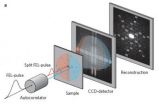(Press-News.org) Humans are notoriously bad at predicting their future happiness. A new study published in Psychological Science, a journal of the Association for Psychological Science, suggests that part of the reason for these mispredictions lies in failing to recognize the key role played by one's own personality when determining future emotional reactions.
The new evidence comes from Jordi Quoidbach, a psychological scientist at the University of Liege, Belgium. Quoidbach and Elizabeth Dunn, his collaborator at the University of British Columbia, found that our natural sunny or negative dispositions might be a more powerful predictor of future happiness than any specific event. They also discovered that most of us ignore our own personalities when we think about what lies ahead—and thus miscalculate our future feelings.
Quoidbach and Dunn call this phenomenon "personality neglect," which they tested in connection with the 2008 U.S. presidential election. In early October 2008, a large sample of Belgians predicted how they would feel the day after the U.S. presidential election if Barack Obama won and how they would feel if John McCain won. Then the day after the election, they reported how they actually felt, and completed personality tests. Nearly everyone in the study supported Obama, so most predicted they would be happy if he won.
Although participants' personalities did not influence their predictions—with both neurotic and cheerful Obama fans saying a victory would bring them equal happiness—people's actual feelings the day after the election closely lined up with their personalities. That is, the grumpy supporters remained relatively grumpy, despite the celebratory event. They "forgot" their own tendency for malaise and overestimated how happy they would be. The positive individuals were more accurate in their forecasting because their natural joie de vivre prevailed. So, ironically, positive people seem less likely than negative people to see the world in an overly rosy light.
"It might be worthwhile, before you make a big decision, to think about your personality and how you usually react," Quoidbach says. Think about planning a vacation, for example. If you have a happy disposition, you probably don't need to waste a lot of money and effort finding the perfect location (because you will be happy with most vacations anyway). By contrast, if you have a less happy disposition, you might be more prone to regret the slightest annoyance, so carefully planning every detail of the trip might be the best strategy for your future happiness. "Don't focus too much on the event; think about who you are," advises Quoidbach.
###
For more information about this study, please contact Jordi Quoidbach at jquoidbach@gmail.com.
The APS journal Psychological Science is the highest ranked empirical journal in psychology. For a copy of the article "Personality Neglect: The Unforeseen Impact of Personal Dispositions on Emotional Life" and access to other Psychological Science research findings, please contact Keri Chiodo at 202-293-9300 or kchiodo@psychologicalscience.org.
People neglect who they really are when predicting their own future happiness
2011-01-13
ELSE PRESS RELEASES FROM THIS DATE:
Fastest movie in the world recorded
2011-01-13
When we catch a cold, the immune system steps in to defend us. This is a well-known biological fact, but is difficult to observe directly. Processes at a molecular level are not only miniscule, they are often extremely fast, and therefore difficult to capture in action. Scientists at Helmholtz-Zentrum Berlin für Materialien und Energie (HZB) and the Technische Uni-versität Berlin (TUB) now present a method that takes us a good step towards producing a "molecular movie". They can record two pictures at such a short time interval that it will soon be possible to observe molecules ...
Sleep-disordered breathing comes at a heavy cost
2011-01-13
"Snoring, sleep apnoea, and obesity-related respiratory difficulties are fairly common disorders that affect a large proportion of the population," according to Poul Jennum, Professor of Clinical Neurophysiology at the Center for Healthy Ageing at the University of Copenhagen Faculty of Health Sciences. He is head of the Danish Centre for Sleep Medicine, Glostrup Hospital, which treats patients from all over the country.
"Previous studies show that these disorders seriously affect quality of life, and our new studies show that people who snore violently, and particularly ...
'Yo-yo' effect of slimming diets explained
2011-01-13
If you want to lose the kilos you've put on over Christmas, you may be interested in knowing that the hormones related to appetite play an important role in your likelihood of regaining weight after dieting. A new study confirms that people with the highest levels of leptin and lowest levels of ghrelin are more likely to put the centimetres they lost back on again.
Doctors often have to deal with patients who, after sticking to a slimming diet, have regained the kilos lost in just a short time – or weigh even more than they did before they started the diet. This is called ...
Drug reduces the increase in fear caused by previous traumatic experiences in mice
2011-01-13
Mice previously exposed to traumatic situations demonstrate a more persistent memory of fear conditioning - acquired by associating an acoustic stimulus with an aversive stimulus - and lack the ability to inhibit this fear. This phenomenon is similar to that of people who suffer from Post-Traumatic Stress Disorder (PTSD), an anxiety disorder which appears after being exposed to highly traumatic situations, such as a violent attack, a natural disaster or physical abuse.
In the study researchers verified that the 7,8-Dihydroxyflavone injected into mice previously subjected ...
Cosmic magnifying lenses distort view of distant galaxies
2011-01-13
Looking deep into space, and literally peering back in time, is like experiencing the universe in a house of mirrors where everything is distorted through a phenomenon called gravitational lensing. Gravitational lensing occurs when light from a distant object is distorted by a massive object that is in the foreground. Astronomers have started to apply this concept in a new way to determine the number of very distant galaxies and to measure dark matter in the universe. Though recent progress has been made in extending the use of gravitational lensing, a letter published ...
Researchers show how 1 gene becomes 2 (with different functions)
2011-01-13
CHAMPAIGN, Ill. — Researchers report that they are the first to show in molecular detail how one gene evolved two competing functions that eventually split up – via gene duplication – to pursue their separate destinies.
The study, in the Proceedings of the National Academy of Sciences, validates a decades-old hypothesis about a key mechanism of evolution. The study also confirms the ancestry of a family of "antifreeze proteins" that helps the Antarctic eelpout survive in the frigid waters of the Southern Ocean.
"I'm always asking the question of where these antifreeze ...
MicroRNAs could increase the risk of amputation in diabetics
2011-01-13
New research has found one of the smallest entities in the human genome, micro-RNA, could increase the risk of limb amputation in diabetic patients who have poor blood flow.
The study by Dr Andrea Caporali and colleagues in Professor Costanza Emanueli's research group in the Regenerative Medicine Section of the School of Clinical Sciences at the University of Bristol was funded by the Medical Research Council and is published online in Circulation: Journal of the American Heart Association.
The research group have shown in an experimental cell study that conditions ...
Some school social workers don't feel prepared to manage cyberbullying, study finds
2011-01-13
ATHENS, Ohio (Jan. 12, 2011) – Some school social workers report that they don't feel equipped to handle incidents of cyberbullying among teens.
A new Ohio University-led survey of 399 members of the 11-state Midwest School Social Work Council found that while nearly all agreed that cyberbullying can cause psychological harm— including suicide—and deserved more attention from schools, just more than half felt empowered to deal with the issue. In contrast, other research on traditional bullying suggests that 86 percent of school staff members are confident in their ability ...
Hold the Red Bull: Energy drinks don't blunt effects of alcohol, study finds
2011-01-13
Marketing efforts that encourage mixing caffeinated "energy" drinks with alcohol often try to sway young people to believe that caffeine will offset the sedating effects of alcohol and increase alertness and stamina.
But a new study led by researchers from the Boston University School of Public Health [BUSPH] and the Center for Alcohol and Addiction Studies at Brown University has found that the addition of caffeine to alcohol -- mixing Red Bull with vodka, for example -- has no effect on enhancing performance on a driving test or improving sustained attention or reaction ...
Climate disasters: New Baylor study explores how people respond
2011-01-13
New results from a Baylor University study show that different behaviors and strategies lead some families to cope better and emerge stronger after a weather-related event.
Dr. Sara Alexander, an applied social anthropologist at Baylor who conducts much of her research in Central America, studied different households in several coastal communities in Belize. While climate change has been an emerging topic of interest to the world community, little scientific data exists on exactly how people respond to different climate-related "shocks" and events such as more intense ...



